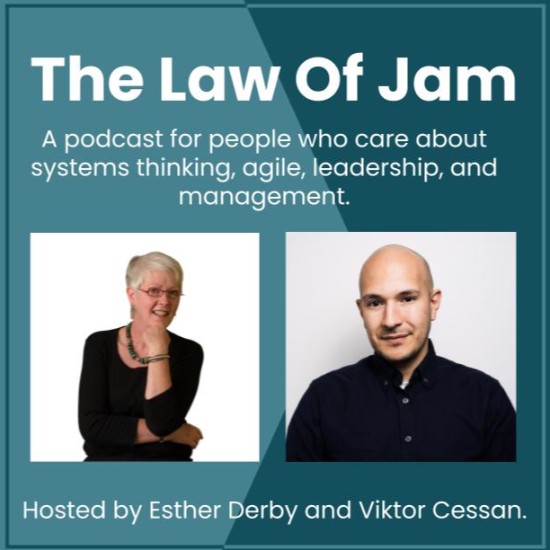Many of the companies I work with want the benefit of the team effect in software development. The managers in these companies recognize the enormous benefits teams provide to the company–creativity, engagement, learning. They want to support team-based work.
However, HR systems often focus exclusively on individual goals, and bonuses. Merit-pay based on individual accomplishment can cause real damage when team-based work is what’s wanted. I’ve talked to managers who spend the year building up teams, only to see their work undone by the review and ranking process.
In a small company, managers have the ability to directly change the goal, bonus, and pay systems. In large companies, or in companies where the software group is only one division, changing those policy may seem impossible.
Until you persuade HR to change to more team-focused strategy, take these steps to minimize competitive focus and amplify the emphasis on shared goals.
1. Amplify the Importance of Team
Make the expectation for teamwork behaviors explicit. Make team performance a significant portion of each team members performance expectation. By significant, I mean 60% or more. Anything less communicates that teamwork is “nice to have,” but not essential. When people must rely on others to achieve a useful goal, tie the success together in performance expectations.
2. Dampen the Race for Rankings

Minimize the competitive focus by reducing stratification. Rather than have five or more ratings, use only three categories.
The top category is for people who are truly exceptional. They may out-perform the system, make an extraordinary contribution on a project, or stand out in some other way. In most organizations, there aren’t many of these people, and most people know who they are and agree who they are.
The bottom category is likewise small and for people who are exceptional. This is for people who clearly are unable to do their job. That might be due to lack of skills, poor fit for the job or some other reason.
Note: Before you put someone in this category, check the environment and how management actions might contribute. Most performance problems are not the sole fault of the employee. When an employee is in the wrong job, or lacks the skills, that points to problem with the hiring process, not the individual. It doesn’t make sense to keep someone in a job they cannot do.
The middle category is the big one–for the people who are doing their jobs well and performing within the bounds of the system.
A three-tier strategy based on normal variation and exceptions reduces the unhealthy effects of ranking individuals against each other. As a bonus, it frees up a great deal of time that managers would otherwise spend on suspect differentiations.
3. Skip the Pecking Order
Don’t waste time comparing people as part of the evaluation. Comparing people within a team or group fosters division and competition. Software is a collaborative endeavor. What matters is how well the team is doing. Spending time teasing out relative contribution or trying to discern the pecking order does not aid in team performance, and can cause real harm. Yes, each person makes a unique contribution. Some contributions may be more visible. That doesn’t make subtle contributions less valuable.
Comparing people across teams or functions is irrelevant–except when considering promotions.
Many companies waste an enormous amount of managers’ time arriving at fine-grained distinctions between employees contribution. Such distinctions are meaningless in collaborative and interdependent work. Managers’ time would be better spent working to improve the system so everyone does better.
4. Emphasize Team-Based Work in Rewards
Eliminate individual performance bonuses. Some companies give team bonuses to recognize a team that has solved a particularly difficult problem, saved the company a huge amount of money, or launched a successful product. Since the bonus goes to the team, in most cases, the team members divide it equally.
Even without formal team bonuses, you can use the pot of money HR allocates for individual bonuses in this way. In the long run, some form of profit sharing or gain sharing based on the over-all performance of the department shifts emphasis to system performance. This may be out of your control in terms of policy. But you can certainly shift focus in how you talk to people about success.
5. Focus Improving the Organization
Emphasize improving team and system performance. This reduces the chance that people will skew their effort towards meeting individual goals at the expense of group goals. Foster improvement thinking with team-based retrospectives. Support improvement thinking by setting time aside for both improvement and learning.
Encourage middle managers to work laterally–working to understand and improve system performance beyond their team. Most of the problems organizations face cross boundaries. It take the effort across the system to improve the system.
6. Take a Stand
Many managers tell me that HR forces them to act out harmful policies related to annual evaluations, ratings, and rankings. HR is there to support performance, not disrupt it. Talk to them about the detrimental effects you are seeing. Share the research. Decline to participate in the ranking mess. If HR insists, distance yourself from the mess and have an HR manager communicate the ratings/rankings.
I have talked to many managers who have opted out of the rating and ranking madness and none of them have been fired. And several of them–through their action–started the conversation and change towards policies that support team-based work rather than hinder it.









At #AYE I heared people talk about resources as fungable meatbased programming units. It kind of stresses the fact that they are people.
Another way to make people think about resources is to talk about their children as resources, I wrote about that some time ago.
http://www.hanoulle.be/2011/05/human-resources/
I prefer Code Producing Units. But it does make the point.
Glad you finally made it to AYE.